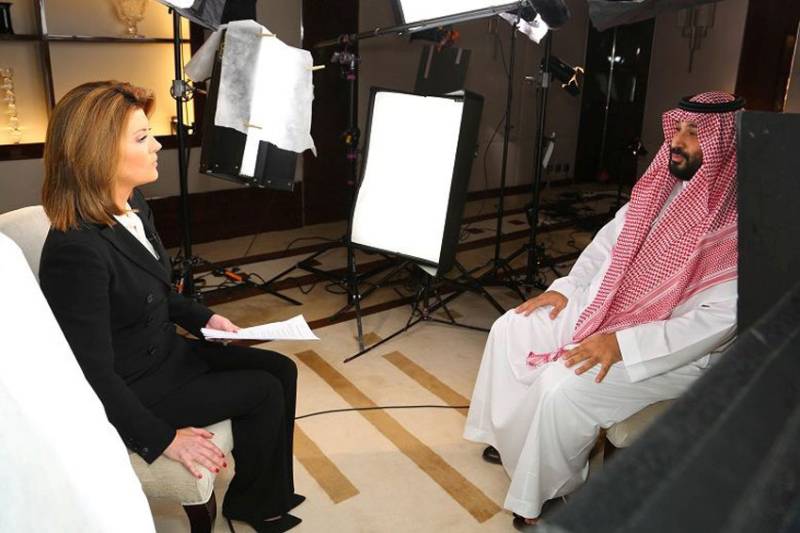WASHINGTON - Saudi Arabia’s crown prince warned in an interview broadcast on Sunday that oil prices could spike to “unimaginably high numbers” if the world doesn’t come together to deter Iran, but said he preferred a political solution to a military one.
Speaking to the CBS program “60 Minutes,” Mohammed bin Salman also denied ordering the killing of journalist Jamal Khashoggi by Saudi operatives last year, but said he ultimately bears “full responsibility” as the kingdom’s de facto leader.
While Khashoggi’s death sparked a global uproar and tarnished the crown prince’s reputation, the Trump administration’s tense standoff with Saudi arch-foe Iran has more recently dominated US policy toward Riyadh, especially after Sept. 14 attacks on the heart of the Saudi oil industry.
“If the world does not take a strong and firm action to deter Iran, we will see further escalations that will threaten world interests,” Prince Mohammed, known as MbS, said through a translator. “Oil supplies will be disrupted and oil prices will jump to unimaginably high numbers that we haven’t seen in our lifetimes.”
In an interview conducted on Tuesday in Saudi Arabia, he said he agreed with US Secretary of State Mike Pompeo that the attacks, which knocked out more than 5% of global oil supply, were an act of war by Iran. But he said he preferred a peaceful resolution because regional war would collapse the global economy. The United States, European powers and Saudi Arabia have blamed the attacks on Iran, which denies involvement. Instead, Yemen’s Iran-aligned Houthi group claimed responsibility.
MbS also said President Donald Trump should meet Iranian President Hassan Rouhani to craft a new deal on Tehran’s nuclear program and regional activities. Efforts to bring the two together last week at the United Nations failed. Tensions between Washington and Tehran escalated after the US withdrew last year from a 2015 nuclear deal and reinstated sanctions against Tehran.
Days before the anniversary of Khashoggi’s murder, MbS said: “Absolutely not,” when asked if he had ordered it. But he said he took full responsibility “since it was committed by individuals working for the Saudi government.”
“This was a mistake. And I must take all actions to avoid such a thing in the future.” The CIA and some Western governments believe MbS ordered the killing, but Saudi officials have repeatedly said he had no role. Asked about the CIA assessment, MbS asked for “such information” to be revealed.
After initial denials, the official Saudi narrative blamed the murder on rogue operatives. The public prosecutor said then-deputy intelligence chief Ahmed al-Asiri ordered the repatriation of Khashoggi, a royal insider who became an outspoken critic, but the lead negotiator ordered him killed after discussions for his return failed.
Asked how the killing could have happened without him knowing about it, MbS said: “Some think that I should know what 3 million people working for the Saudi government do daily? It’s impossible that the 3 million would send their daily reports to the leader or the second highest person in the Saudi government.”
Eleven Saudi suspects have been put on trial in secretive proceedings. A U.N. report called for MbS and other senior Saudi officials to be investigated. Asiri and Saud al-Qahtani, a senior adviser, were fired over involvement in the operation.






